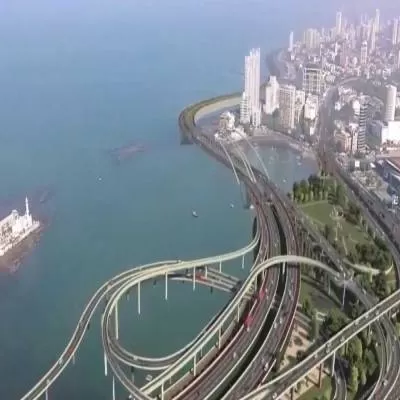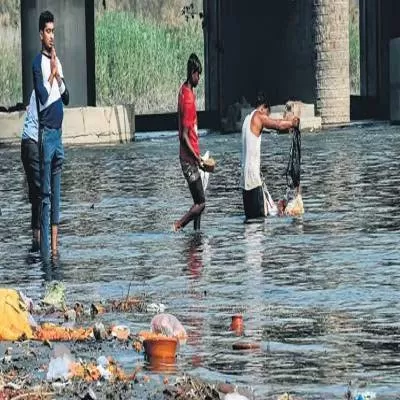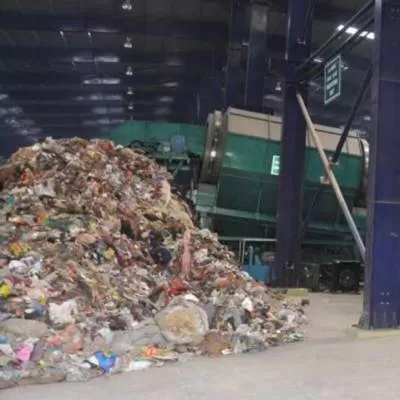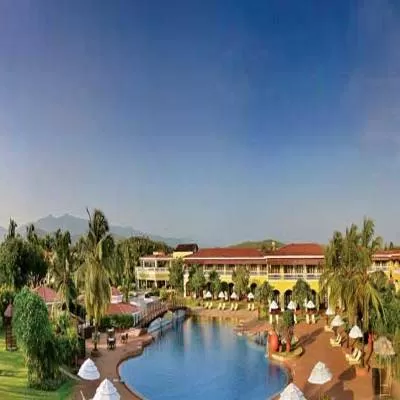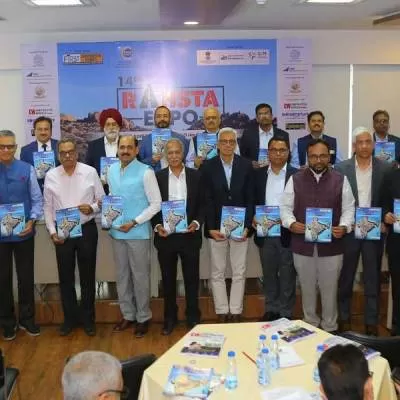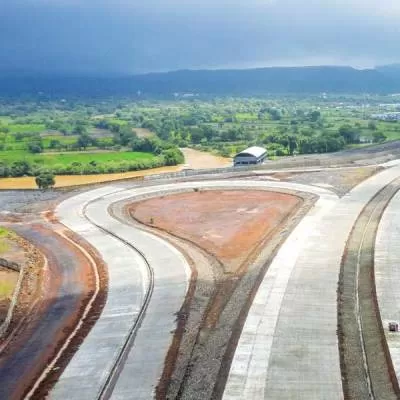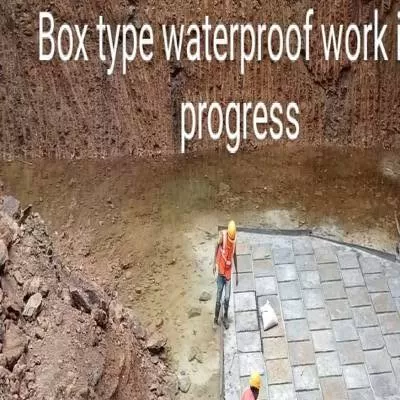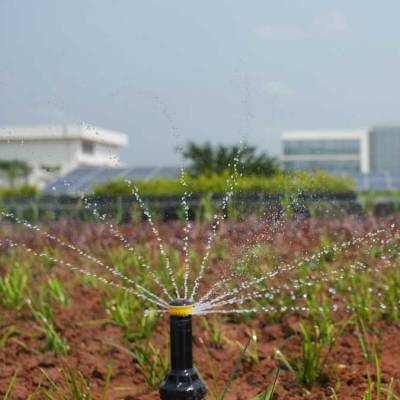- Home
- Infrastructure Urban
- WATER & WASTE
- Row over Rehabilitation
Row over Rehabilitation
Janaki Krishnamoorthi presents the 18th in a series of case studies referred for arbitration.
A contract for the construction of residential tenements for project-affected households (PAHs) of a railway project was awarded to a contractor by a government agency. The multi-storeyed buildings were to be built along with sewerage and water supply in a Mumbai suburb. According to contract conditions, the work was to be supervised by an engineer nominated by the project management consultant and any dispute regarding Engineer’s decision was to be referred to a designated adjudicator. The site was occupied by hutments and the government agency was to clear them and hand over the land to the contractor. The entire project to be undertaken in phases was to be completed in 15 months. However, the project was delayed and even the first phase could not be completed as scheduled.
Nature of disputes
The disputes reportedly started after submission of Running Account (RA) Bill No. 3 by the claimant in June 2004, which included excavation work for the foundation and claim for variation owing to extra depth in foundation than originally assumed, for loss of overheads, etc. This was done as per contract conditions. However, the engineer did not approve the variations and processed the bill only for actual work done. The contractor continued submitting subsequent bills up to Bill No. 9, including new and pending claims and compound interest on delayed payments and the engineer continued to certify the bills only for work done and rejected the claims. The contractor then referred them to the adjudicator who, however, did not respond within the stipulated period of 28 days from receipt of notification of dispute. The contractor invoked arbitration in April 2005.
Arbitration
The arbitral tribunal was constituted with SR Wadekar as presiding arbitrator and two engineers nominated as co-arbitrators by the government agency and contractor. A preliminary meeting was held in May 2005 in Mumbai. Thereafter both parties submitted their claims along with their pleadings, replies and rejoinders supported by documentary proof. Both parties agreed that claims arising out of RA Bill 3 to 9 would form the subject matter of the present arbitral proceedings and further RA Bills would be dealt with by the same tribunal in subsequent proceedings.
Analysis of basic causes behind claims
Before tackling individual claims, the arbitral tribunal ruled on several underlying causes that formed the basis for almost all the claims. Two major rulings are given below.
Was there a delay in handing over the site? The claimant alleged that the required land for starting work on Phase 1 was handed over after a delay of five months. However, the respondent contended that a major portion of the land for Phase 1 was handed over in early January 2004 but the contractor delayed it further as he had not mobilised labour, materials, plant and machinery and not completed certain formalities. Despite this, it granted extension up to March 2005 and further extension up to April end was granted by the adjudicator. The arbitral tribunal observed that the documents submitted showed that the land sufficient to complete Phase 1 was made available only by April 2004. For these reasons, the respondent’s engineer himself accepted that the start of work should be calculated from March 2004 and the project should be completed in 15 months thereafter. Hence, the tribunal ruled that there was delay in handing over site by the respondent.
Can lump sum bid price be subjected to adjustment? Whenever extra payment was involved, the respondent heavily relied on the bid document clause that stipulated, “The lump sum bid price quoted by the bidder shall be fixed for the duration of the contract and shall not be subjected to adjustment on any account.” The tribunal pointed out that while the contract stipulated that the lump sum offer could not be increased on any account, the preamble of the contract stated that there could be a variation in foundation depths; and after providing for a +/- 10 per cent margin of variation, extra rates shall be paid for anything beyond or rates reduced.
Likewise, the tribunal found two more ambiguous clauses in the case of compensation. One clause stated that if a compensation event would cause additional cost or prevent work from being completed on time, the work period will be extended but the contract price shall not be increased. But the very next clause specified that,” as soon as information demonstrating the effect of each compensation event upon the contractor’s forecast cost has been provided by the contractor, it is to be assessed by the engineer and the contract price adjusted accordingly. If the contractor’s forecast is deemed unreasonable, the engineer shall adjust the contract price based on his own forecast.”
Hence, the tribunal ruled that as these clauses were contradicting each other, the rule of contra proferentum (a rule of contractual interpretation that provides that if words of a contract are ambiguous, or of two equally possible meanings, they should be interpreted against the drafter of the contract and not against the other party) would apply in favour of the claimant wherever it was justified.
The claims
The claimant submitted several claims for variation in foundation depth, loss of overheads owing to delay in handing over site, underutilisation of machinery, compensation for increased cost of steel and cement, refund of excise duty paid, interest on delayed payment, pendente lite interest and future interest on the award amount cost of arbitration. Some of the major claims are briefly dealt with here.
Claim for variation in foundation depths
According to the claimant, it had worked out its offer based on the geotechnical report given by the respondent that showed that proper strata would be available at 1.5 to 2 m depth. However, during actual excavation, strata suitable for foundation was met only at a depth of 6 m and hence it demanded that all excavation and other relevant work carried out beyond the depth of 2 m be treated as a variation and paid for accordingly. The respondent contended that the claimant was warned that it would not entertain any claim in case of discrepancy in its report and it was asked to assess the site conditions on its own. The tribunal observed that a contract making reliance on the geotechnical report mandatory on one hand and simultaneously declaring that the respondent would not entertain any claim in case of discrepancy was self-contradictory. The tribunal further noted that it was not feasible for bidders to conduct a detailed investigation of the site owing to the short period available between calling tenders and receiving bids. It hence ruled that the claimant was eligible for payment for extra excavation.
Based on the site investigation report, the tribunal arrived at 2.71 m below ground level as a reasonable depth for excavation of foundation and decided that payment for quantity in excess of 2.71 m depth was to be treated as variation and paid for at DSR (district schedule of rate) of Rs 104.40/cu m. The tribunal worked out the amount as follows:
Quantity of excavation for total depth of 3.82 (average) = 10,931 cu m
Payable quantity of excavation beyond average depth of 2.71 m - 10,930.92 x (3.82-2.71) /3.82 = 3,176.26 cu m
Claim amount payable 3,176.26 x 104.40 = Rs 331,602 (rounded off)
Claim against loss of overheads
This claim was for loss of overheads and underutilisation of machinery and equipment owing to delays in handing over the site. The claimant had worked out the amount by assuming overheads at 20 per cent of the tender cost to be recovered over 15 months, the period for completing the project. However, as actual work done during 15 months was less, the claimant argued that it was prohibited from recovering its overhead costs and claimed the shortfall.
The tribunal observed that overhead charges are progressively recovered as the contractor gets paid for work. When the contract period gets extended, the contractor has to remain fully mobilised at site for a longer time than assumed while bidding for the work, thus increasing overheads and causing loss. Hence, the tribunal accepted the claim but not the sum quantified by the claimant as the general practice is to consider 10 per cent of contract price as the percentage for overhead as against the 20 per cent claimed. Further, as the lower turnover was also because of lapses on the contractor’s part, the tribunal felt that he should also share the loss. Hence the tribunal worked out the claim as follows:
Delay owing to handing over site = 3.4 months
Delay owing to extension of work period (up to April 2005) = 5.5 months
(However as this tribunal was dealing with the period February 2005 [when RA bill 9 was submitted], the claim is restricted to that date)
Hence delay owing to extension of work period = 3.5 months.
Total delay = 6.54 months
Total contract price = Rs 41.970
10 per cent overhead charges = Rs 4.1970 crore (for work period of 15 months)
Overhead charges per month = Rs.27.98 lakh
Applying Hudson’s formula loss of overheads owing to delay of 6.54 months (27.98 x 6.54) = Rs 183 lakh (rounded off) 25 per cent reduction in compensation owing to contractor lapses
Final amount payable = Rs 183 lakh x 0.75 = Rs 137.25 lakh
Claim for loss incurred owing to hiked steel and cement prices
According to the contractor, steel and cement had to be purchased at a higher price during the extended period of contract as prices had gone up. It demanded compensation for losses thus incurred. The respondent pointed out that the price adjustment clause was deleted in the contract and during pre-bid meeting it was made clear that payment for cost escalation on materials, labour, etc, would not be granted. It further maintained that the bid document clause also prohibited any increase in lump sum bid price. However, the claimant maintained that it was not demanding price escalation but compensation for loss incurred and referred to the Maharashtra government’s order instructing employers to compensate contractors in similar situations.
The tribunal observed that the government order of May 2005 was only for steel and contracts that were in existence on 1.7.2003 and not applicable to the present contract signed in December 2003. Further, the tribunal observed that as this kind of compensation was not covered by any contract provision, the claim could not be granted.
The counter claims
The respondent submitted three counter claims: loss owing to delay in execution of work; loss of interest on mobilisation advance owing to slow progress of work; and loss owing to delay in execution of the railway project for which the site was to be cleared. The tribunal rejected all three claims, stating that the respondent had the option to levy liquidated damages in the first two instances, which it failed to do at the appropriate time. The third claim was rejected for want of quantification.
In a Nutshell
Project: Construction of residential tenements for project-affected households of a railway project
Location: Mumbai
Parties in dispute: Government agency and contractor
Arbitration invoked: By contractor in April 2005
Arbitral tribunal: SR Wadekar, presiding arbitrator, and two engineer-arbitrators nominated by claimant and respondent
Award declared: April 2007
S.R. Wadekar shares his views on:
Judges in arbitral forums
Judges are experts in legal issues but are generally not conversant with intricate technical aspects of construction like design, material quality and soil conditions. Likewise, the majority of the engineers who are proficient in construction technicalities have no legal knowledge. Hence, an ideal arbitral forum should comprise both judges and engineers. Judges look at legal issues from a broader perspective taking into account the general law of the land and natural justice. I have worked with several retired judges and learnt a lot from them, including where we can transcend the written word. For instance, we often consider contract terms sacrosanct and would not dare to say any clause is incorrect or cannot be implemented even if we feel the clause is not right. But judges go beyond the terms where necessary and pronounce that a particular clause is against natural justice. This is in keeping with the basic legal tenet that the statute cannot be modified by contractual provisions made with the consent of both parties.
Dispute resolution board
The basic objective behind setting up a dispute resolution board (DRB) was to resolve disputes at the initial stage itself by nipping them in the bud. For this purpose, DRB officials are supposed to visit the work site at least once a month, meet the parties, discuss their problems and sort them out. Another major objective behind DRB is to ensure that the project work is not stalled because of disputes. Often it takes years to settle disputes through standard procedures like arbitration or court of law and DRB through its interim verdict often ensures that the work continues to progress. DRB is an effective process with minimal time and cost expended. I have found DRBs effective only where the employer or his representative is duly empowered to accept an unpalatable but independent opinion. In most cases, the officers of the employer are under the wrong impression that they must cover up their colleague’s lapses or else they would be held responsible. Therefore, the general tendency is to deny all unpalatable decisions and push the dispute to arbitration. This has made the provision of DRB a mere time-consuming farce. The remedy lies in empowering officers to be bold and accept adverse but judicious decisions.
Causes behind disputes
The major reasons for many disputes are improper and inadequate contract terms that do not take into consideration the peculiarities of the project, its site and soil conditions. Even rates of a similar project may vary at different locations; for instance, a project on a hill may cost more as water and other materials must be brought from a distance. In one of the housing projects in the earthquake rehabilitation works in Killari, the river sand that was to be used as per the contract was not available locally. So the contractor had to fetch it from another distant location for which he charged extra. A dispute arose on this as the contract stated that extra costs would not be entertained. In the case of Jogeshwari-Vikhroli Link Road in Mumbai, where thousands of hutments and structures had to be removed, the contract specified that the project must be completed in one-and-a-half years. This gave rise to delay-damage claims as clear possession of land in sufficient quantity could not be made available for years after the issuing of the work order. So why insert such a term in the contract that has now led to several disputes between the contractor and the Mumbai Metropolitan Region Development Authority MMRDA)? Our contracts are often drafted by people who do not have the requisite knowledge of site conditions or the experience of construction difficulties or even legal niceties. Hence, special panels (perhaps one per state) comprising engineers and legal experts well-experienced in the construction field and aware of practical difficulties in execution should be formed to prepare contract documents. There should, of course, be a standard contract format suitable to Indian conditions. But this should be modified to address the special problems.
SR Wadekar
The details of this case have been provided by SR Wadekar, a civil engineer by profession who has been involved in arbitration for over two decades as a co-arbitrator/presiding arbitrator and counsel. Some of his awards dismissed by the High Court have been upheld by the Supreme Court bearing testimony to his legal acumen. Wadekar has also been a member of the dispute resolution board (DRB) on several construction projects. A civil engineering graduate from College of Engineering, Pune, Wadekar also acquired a law degree.
In 1955, he joined Public Works Department (PWD), Maharashtra (then Saurashtra division), where he worked in various capacities and rose to become chief engineer. During his three-decade-long career in PWD, he undertook some landmark projects in the difficult and backward coastal region of Konkan, including the redevelopment of the Bombay Konkan Goa road, and the construction of major bridges on Mochemad Creek, Revdanda Creek and Savitri River. He was also in charge of constructing the Ghodbunder-Manori section of the Mumbai Ahmedabad National Highway on virgin forest land in Thane district where rigorous soil testing, latest road crust designing and monitoring methods were used for the first time in Maharashtra. The project also involved major bridges on tidally affected rivers Tansa, Vandri and Vaitarana.
In between, he was on deputation to the Maharashtra Housing and Area Development Authority ( MHADA) in Mumbai and again worked in various capacities and headed MHADA as vice-chairman and chief officer. In 1979, he represented India at a seminar on improving low-income residential areas in southeast Asian cities held in Indonesia sponsored by the Indonesian government and the International Technical Assistance Department of the Royal Netherlands. From 1970 to 1976, he had a stint at Mantralaya as undersecretary/deputy secretary responsible for planning, estimating and scrutinising projects for inclusion in Maharashtra’s annual budget. Upon retirement in 1988, Wadekar was selected by the World Bank to work as a consulting advisor to the Sri Lankan government under the aegis of Tata Consultancy Services. He is now based in Pune.
You can contact SR Wadekar at 020-2422 0971 or E-mail him at balwadekar@gmail.com
- Construction
- Update
- Portal
- Magazine
- India
- July
- 2010
- World
- case studies
- arbitration
- contract
- residential
- tenements
- PAHs
- Railway
- government
- sewerage
- Mumbai
- water
- engineer
- adjudicator
- Running
- Account
- excavation
- arbitral
- tribunal
- SR Wadekar
- machinery
- bidding
- compensation
- geotechnical
- claimant
- tenders
- investigation
- DSR
- Maharashtra
- mobilisation
- Mumbai
- sacrosanct
- DRB
- rehabilitation
- Killari
- Jogeshwar
- Vikhroli
- MMRDA
- High Court
- Engineering
- Pune
- PWD
- MHADA
- Mantralaya
- Indonesian
- Netherlands
- World Bank
- Sri Lanka
- Tata
- Consultancy
- Services
Janaki Krishnamoorthi presents the 18th in a series of case studies referred for arbitration. A contract for the construction of residential tenements for project-affected households (PAHs) of a railway project was awarded to a contractor by a government agency. The multi-storeyed buildings were to be built along with sewerage and water supply in a Mumbai suburb. According to contract conditions, the work was to be supervised by an engineer nominated by the project management consultant and any dispute regarding Engineer’s decision was to be referred to a designated adjudicator. The site was occupied by hutments and the government agency was to clear them and hand over the land to the contractor. The entire project to be undertaken in phases was to be completed in 15 months. However, the project was delayed and even the first phase could not be completed as scheduled. Nature of disputes The disputes reportedly started after submission of Running Account (RA) Bill No. 3 by the claimant in June 2004, which included excavation work for the foundation and claim for variation owing to extra depth in foundation than originally assumed, for loss of overheads, etc. This was done as per contract conditions. However, the engineer did not approve the variations and processed the bill only for actual work done. The contractor continued submitting subsequent bills up to Bill No. 9, including new and pending claims and compound interest on delayed payments and the engineer continued to certify the bills only for work done and rejected the claims. The contractor then referred them to the adjudicator who, however, did not respond within the stipulated period of 28 days from receipt of notification of dispute. The contractor invoked arbitration in April 2005. Arbitration The arbitral tribunal was constituted with SR Wadekar as presiding arbitrator and two engineers nominated as co-arbitrators by the government agency and contractor. A preliminary meeting was held in May 2005 in Mumbai. Thereafter both parties submitted their claims along with their pleadings, replies and rejoinders supported by documentary proof. Both parties agreed that claims arising out of RA Bill 3 to 9 would form the subject matter of the present arbitral proceedings and further RA Bills would be dealt with by the same tribunal in subsequent proceedings. Analysis of basic causes behind claims Before tackling individual claims, the arbitral tribunal ruled on several underlying causes that formed the basis for almost all the claims. Two major rulings are given below. Was there a delay in handing over the site? The claimant alleged that the required land for starting work on Phase 1 was handed over after a delay of five months. However, the respondent contended that a major portion of the land for Phase 1 was handed over in early January 2004 but the contractor delayed it further as he had not mobilised labour, materials, plant and machinery and not completed certain formalities. Despite this, it granted extension up to March 2005 and further extension up to April end was granted by the adjudicator. The arbitral tribunal observed that the documents submitted showed that the land sufficient to complete Phase 1 was made available only by April 2004. For these reasons, the respondent’s engineer himself accepted that the start of work should be calculated from March 2004 and the project should be completed in 15 months thereafter. Hence, the tribunal ruled that there was delay in handing over site by the respondent. Can lump sum bid price be subjected to adjustment? Whenever extra payment was involved, the respondent heavily relied on the bid document clause that stipulated, “The lump sum bid price quoted by the bidder shall be fixed for the duration of the contract and shall not be subjected to adjustment on any account.” The tribunal pointed out that while the contract stipulated that the lump sum offer could not be increased on any account, the preamble of the contract stated that there could be a variation in foundation depths; and after providing for a +/- 10 per cent margin of variation, extra rates shall be paid for anything beyond or rates reduced. Likewise, the tribunal found two more ambiguous clauses in the case of compensation. One clause stated that if a compensation event would cause additional cost or prevent work from being completed on time, the work period will be extended but the contract price shall not be increased. But the very next clause specified that,” as soon as information demonstrating the effect of each compensation event upon the contractor’s forecast cost has been provided by the contractor, it is to be assessed by the engineer and the contract price adjusted accordingly. If the contractor’s forecast is deemed unreasonable, the engineer shall adjust the contract price based on his own forecast.” Hence, the tribunal ruled that as these clauses were contradicting each other, the rule of contra proferentum (a rule of contractual interpretation that provides that if words of a contract are ambiguous, or of two equally possible meanings, they should be interpreted against the drafter of the contract and not against the other party) would apply in favour of the claimant wherever it was justified. The claims The claimant submitted several claims for variation in foundation depth, loss of overheads owing to delay in handing over site, underutilisation of machinery, compensation for increased cost of steel and cement, refund of excise duty paid, interest on delayed payment, pendente lite interest and future interest on the award amount cost of arbitration. Some of the major claims are briefly dealt with here. Claim for variation in foundation depths According to the claimant, it had worked out its offer based on the geotechnical report given by the respondent that showed that proper strata would be available at 1.5 to 2 m depth. However, during actual excavation, strata suitable for foundation was met only at a depth of 6 m and hence it demanded that all excavation and other relevant work carried out beyond the depth of 2 m be treated as a variation and paid for accordingly. The respondent contended that the claimant was warned that it would not entertain any claim in case of discrepancy in its report and it was asked to assess the site conditions on its own. The tribunal observed that a contract making reliance on the geotechnical report mandatory on one hand and simultaneously declaring that the respondent would not entertain any claim in case of discrepancy was self-contradictory. The tribunal further noted that it was not feasible for bidders to conduct a detailed investigation of the site owing to the short period available between calling tenders and receiving bids. It hence ruled that the claimant was eligible for payment for extra excavation. Based on the site investigation report, the tribunal arrived at 2.71 m below ground level as a reasonable depth for excavation of foundation and decided that payment for quantity in excess of 2.71 m depth was to be treated as variation and paid for at DSR (district schedule of rate) of Rs 104.40/cu m. The tribunal worked out the amount as follows: Quantity of excavation for total depth of 3.82 (average) = 10,931 cu mPayable quantity of excavation beyond average depth of 2.71 m - 10,930.92 x (3.82-2.71) /3.82 = 3,176.26 cu mClaim amount payable 3,176.26 x 104.40 = Rs 331,602 (rounded off) Claim against loss of overheads This claim was for loss of overheads and underutilisation of machinery and equipment owing to delays in handing over the site. The claimant had worked out the amount by assuming overheads at 20 per cent of the tender cost to be recovered over 15 months, the period for completing the project. However, as actual work done during 15 months was less, the claimant argued that it was prohibited from recovering its overhead costs and claimed the shortfall. The tribunal observed that overhead charges are progressively recovered as the contractor gets paid for work. When the contract period gets extended, the contractor has to remain fully mobilised at site for a longer time than assumed while bidding for the work, thus increasing overheads and causing loss. Hence, the tribunal accepted the claim but not the sum quantified by the claimant as the general practice is to consider 10 per cent of contract price as the percentage for overhead as against the 20 per cent claimed. Further, as the lower turnover was also because of lapses on the contractor’s part, the tribunal felt that he should also share the loss. Hence the tribunal worked out the claim as follows: Delay owing to handing over site = 3.4 monthsDelay owing to extension of work period (up to April 2005) = 5.5 months(However as this tribunal was dealing with the period February 2005 [when RA bill 9 was submitted], the claim is restricted to that date)Hence delay owing to extension of work period = 3.5 months.Total delay = 6.54 monthsTotal contract price = Rs 41.97010 per cent overhead charges = Rs 4.1970 crore (for work period of 15 months)Overhead charges per month = Rs.27.98 lakhApplying Hudson’s formula loss of overheads owing to delay of 6.54 months (27.98 x 6.54) = Rs 183 lakh (rounded off) 25 per cent reduction in compensation owing to contractor lapsesFinal amount payable = Rs 183 lakh x 0.75 = Rs 137.25 lakh Claim for loss incurred owing to hiked steel and cement prices According to the contractor, steel and cement had to be purchased at a higher price during the extended period of contract as prices had gone up. It demanded compensation for losses thus incurred. The respondent pointed out that the price adjustment clause was deleted in the contract and during pre-bid meeting it was made clear that payment for cost escalation on materials, labour, etc, would not be granted. It further maintained that the bid document clause also prohibited any increase in lump sum bid price. However, the claimant maintained that it was not demanding price escalation but compensation for loss incurred and referred to the Maharashtra government’s order instructing employers to compensate contractors in similar situations. The tribunal observed that the government order of May 2005 was only for steel and contracts that were in existence on 1.7.2003 and not applicable to the present contract signed in December 2003. Further, the tribunal observed that as this kind of compensation was not covered by any contract provision, the claim could not be granted. The counter claims The respondent submitted three counter claims: loss owing to delay in execution of work; loss of interest on mobilisation advance owing to slow progress of work; and loss owing to delay in execution of the railway project for which the site was to be cleared. The tribunal rejected all three claims, stating that the respondent had the option to levy liquidated damages in the first two instances, which it failed to do at the appropriate time. The third claim was rejected for want of quantification. In a Nutshell Project: Construction of residential tenements for project-affected households of a railway projectLocation: Mumbai Parties in dispute: Government agency and contractor Arbitration invoked: By contractor in April 2005Arbitral tribunal: SR Wadekar, presiding arbitrator, and two engineer-arbitrators nominated by claimant and respondent Award declared: April 2007 S.R. Wadekar shares his views on: Judges in arbitral forums Judges are experts in legal issues but are generally not conversant with intricate technical aspects of construction like design, material quality and soil conditions. Likewise, the majority of the engineers who are proficient in construction technicalities have no legal knowledge. Hence, an ideal arbitral forum should comprise both judges and engineers. Judges look at legal issues from a broader perspective taking into account the general law of the land and natural justice. I have worked with several retired judges and learnt a lot from them, including where we can transcend the written word. For instance, we often consider contract terms sacrosanct and would not dare to say any clause is incorrect or cannot be implemented even if we feel the clause is not right. But judges go beyond the terms where necessary and pronounce that a particular clause is against natural justice. This is in keeping with the basic legal tenet that the statute cannot be modified by contractual provisions made with the consent of both parties. Dispute resolution board The basic objective behind setting up a dispute resolution board (DRB) was to resolve disputes at the initial stage itself by nipping them in the bud. For this purpose, DRB officials are supposed to visit the work site at least once a month, meet the parties, discuss their problems and sort them out. Another major objective behind DRB is to ensure that the project work is not stalled because of disputes. Often it takes years to settle disputes through standard procedures like arbitration or court of law and DRB through its interim verdict often ensures that the work continues to progress. DRB is an effective process with minimal time and cost expended. I have found DRBs effective only where the employer or his representative is duly empowered to accept an unpalatable but independent opinion. In most cases, the officers of the employer are under the wrong impression that they must cover up their colleague’s lapses or else they would be held responsible. Therefore, the general tendency is to deny all unpalatable decisions and push the dispute to arbitration. This has made the provision of DRB a mere time-consuming farce. The remedy lies in empowering officers to be bold and accept adverse but judicious decisions. Causes behind disputes The major reasons for many disputes are improper and inadequate contract terms that do not take into consideration the peculiarities of the project, its site and soil conditions. Even rates of a similar project may vary at different locations; for instance, a project on a hill may cost more as water and other materials must be brought from a distance. In one of the housing projects in the earthquake rehabilitation works in Killari, the river sand that was to be used as per the contract was not available locally. So the contractor had to fetch it from another distant location for which he charged extra. A dispute arose on this as the contract stated that extra costs would not be entertained. In the case of Jogeshwari-Vikhroli Link Road in Mumbai, where thousands of hutments and structures had to be removed, the contract specified that the project must be completed in one-and-a-half years. This gave rise to delay-damage claims as clear possession of land in sufficient quantity could not be made available for years after the issuing of the work order. So why insert such a term in the contract that has now led to several disputes between the contractor and the Mumbai Metropolitan Region Development Authority MMRDA)? Our contracts are often drafted by people who do not have the requisite knowledge of site conditions or the experience of construction difficulties or even legal niceties. Hence, special panels (perhaps one per state) comprising engineers and legal experts well-experienced in the construction field and aware of practical difficulties in execution should be formed to prepare contract documents. There should, of course, be a standard contract format suitable to Indian conditions. But this should be modified to address the special problems. SR Wadekar The details of this case have been provided by SR Wadekar, a civil engineer by profession who has been involved in arbitration for over two decades as a co-arbitrator/presiding arbitrator and counsel. Some of his awards dismissed by the High Court have been upheld by the Supreme Court bearing testimony to his legal acumen. Wadekar has also been a member of the dispute resolution board (DRB) on several construction projects. A civil engineering graduate from College of Engineering, Pune, Wadekar also acquired a law degree. In 1955, he joined Public Works Department (PWD), Maharashtra (then Saurashtra division), where he worked in various capacities and rose to become chief engineer. During his three-decade-long career in PWD, he undertook some landmark projects in the difficult and backward coastal region of Konkan, including the redevelopment of the Bombay Konkan Goa road, and the construction of major bridges on Mochemad Creek, Revdanda Creek and Savitri River. He was also in charge of constructing the Ghodbunder-Manori section of the Mumbai Ahmedabad National Highway on virgin forest land in Thane district where rigorous soil testing, latest road crust designing and monitoring methods were used for the first time in Maharashtra. The project also involved major bridges on tidally affected rivers Tansa, Vandri and Vaitarana. In between, he was on deputation to the Maharashtra Housing and Area Development Authority ( MHADA) in Mumbai and again worked in various capacities and headed MHADA as vice-chairman and chief officer. In 1979, he represented India at a seminar on improving low-income residential areas in southeast Asian cities held in Indonesia sponsored by the Indonesian government and the International Technical Assistance Department of the Royal Netherlands. From 1970 to 1976, he had a stint at Mantralaya as undersecretary/deputy secretary responsible for planning, estimating and scrutinising projects for inclusion in Maharashtra’s annual budget. Upon retirement in 1988, Wadekar was selected by the World Bank to work as a consulting advisor to the Sri Lankan government under the aegis of Tata Consultancy Services. He is now based in Pune. You can contact SR Wadekar at 020-2422 0971 or E-mail him at balwadekar@gmail.com


